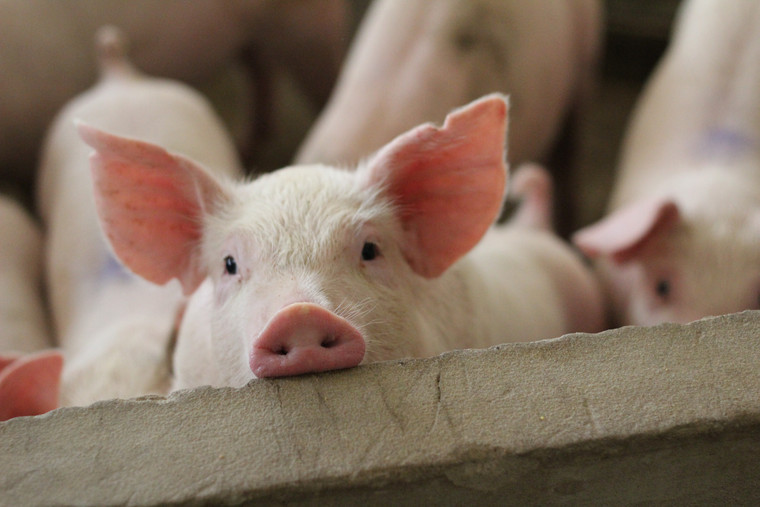The pig sector’s call for a £3.2 million cash injection to recognise the impact of overweight pigs on producers’ businesses received a welcome boost when DEFRA’s own Farm Business Income figures estimated that average pig farm incomes had plummeted from £37,000 in 2019/20 to just £5,000 in 2020/21.
Those figures struck a chord with Jack Bosworth, who runs an arable and pig operation with his father Stuart at Spains Hall, Willingale and is an active member of the National Pig Association (NPA), which made the original request to government.
“Pork is 20p a kilo down on this time last year. We sell around 280 pigs a week at between 80 and 90 kilos, so that equates to a fall of £5,000 every week on last year’s income. Add in the fact that feed prices are currently high and you can see the problem.”
The industry has been facing a ‘perfect storm’ of issues, with falling prices, rising costs, the general disruption caused by Covid-19 and restricted access to the market in China all contributing to the crisis.
DEFRA highlighted a 5% rise in input costs, while the Agriculture and Horticulture Development Board’s data on pig farms’ financial performance reveals that positive margins of £14/head, £10/head and £7/head in the first three quarters of 2020 slumped to a negative margin of -£6/head in the fourth quarter.
“The pig sector has never enjoyed the luxury of subsidies, but these are challenging times, and with so many different elements being thrown at us we need a little bit of help,” said Jack.
“Even DEFRA is now projecting incomes falling by an astonishing 87%, so they must surely accept that farmers need support. Everyone talks about the challenge facing pubs, and I have every sympathy with their plight, but I’m sure that even pubs haven’t seen their income fall by that level if they have taken steps to adapt to the pandemic, like offering takeaways.”
While support would clearly be welcome, Jack said that it was secondary to the fundamental issue of tackling the cause of the problems.
“No-one is going to turn down help, but it’s more important that we get things back up and running and sort out issues like access to China,” he said. “In the long term, ensuring these problems don’t happen again is more important to the industry.
“With our cost of production higher than the sale price, it has been extremely tight here. We are used to working within volatile markets, but the addition of Covid-19 and Brexit-related issues really did create a situation that we wouldn’t want to encounter again, and more importantly couldn’t encounter again, without significant support from above.
“Prices have picked up a little in recent weeks, but feed is still expensive. We are hoping for a better finish to the year and we want people to keep buying British pork, but it’s proving to be a painful and challenging time.”
The NPA’s request, supported by processors, follows similar schemes in Scotland and Northern Ireland that reflect Covid-related losses suffered by producers.
Covid-19 outbreaks in pork plants have caused a backlog of pigs, which has in turn led to higher carcase weights and subsequent price deductions being imposed by processors. At the same time, exports to China from a number of key plants have been suspended.
The NPA’s March request to DEFRA was for a £3.2m compensation package to reflect deductions made for overweight pigs. Chief Executive Zoe Davies said the department had “taken a very keen interest” in the plight of the pig sector in recent months, and while she admitted this kind of support would be unprecedented, she said these were unprecedented times.
“The entire UK pig sector has been hit by this situation, and given that compensation has been paid to other sectors, such as dairy, we believe we have a very justifiable case,” she commented.




